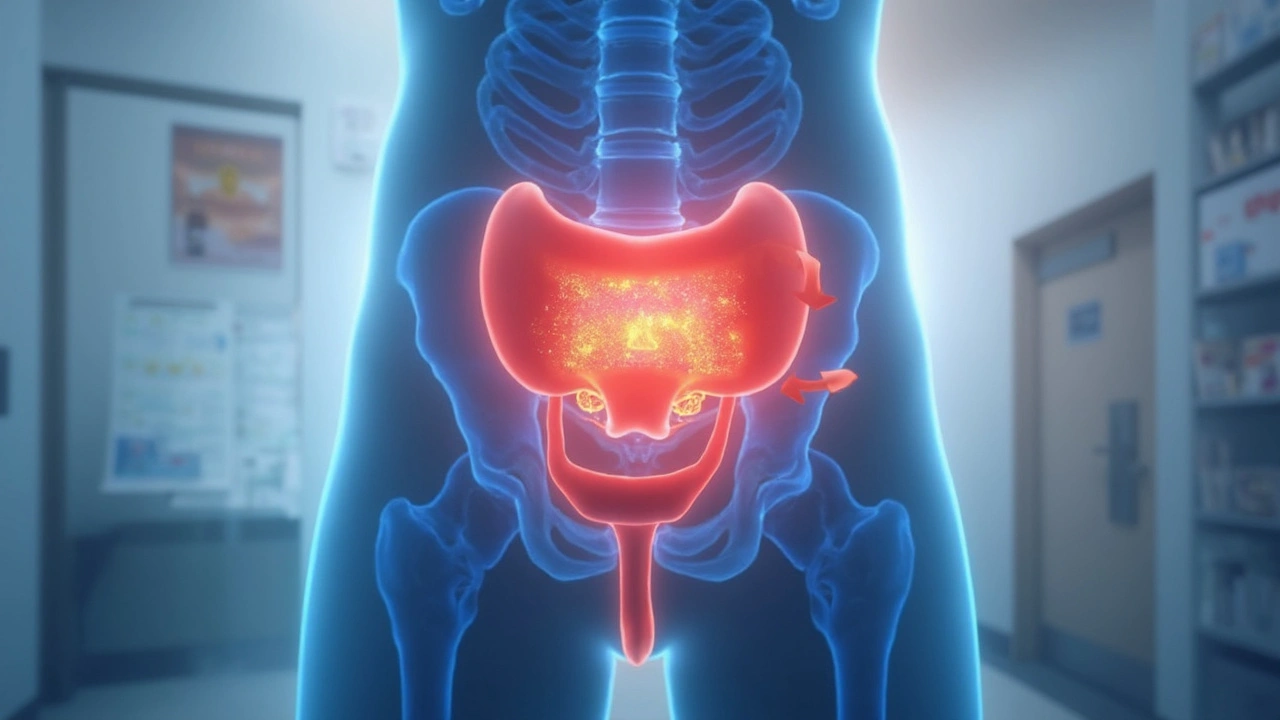Urinary Retention – What It Is and How to Deal With It
Ever felt like you can't empty your bladder even after you try? That uncomfortable feeling is called urinary retention, and it can happen to anyone. Sometimes the urine builds up because the bladder muscles don’t contract properly, or because something blocks the flow. It’s not just a minor annoyance—if left untreated, the pressure can damage kidneys and cause infections.
Common Causes and Warning Signs
The most frequent culprits are prostate enlargement in men, medication side‑effects, and nerve problems that affect bladder signals. Certain antihistamines, antidepressants, and muscle relaxers can make the bladder muscles relax too much, leaving urine stuck inside. Women may experience retention after surgery, childbirth, or severe constipation that presses on the urinary tract.
Watch out for these red flags: a sudden urge to pee that doesn’t finish, a weak stream, dribbling after you think you’re done, or a feeling of fullness even after you’ve gone. Sometimes the bladder just won’t start at all—this is called acute retention and needs immediate attention.
Treatment and When to Call a Doctor
For mild cases, doctors often suggest a trial of timed voiding—go to the bathroom every two to three hours even if you don’t feel the urge. Drinking plenty of water (but not too much) helps keep the urine flowing. If medication is the cause, a quick switch or dose adjustment can solve the problem.
When the blockage is physical, doctors may use a thin tube called a catheter to drain the bladder safely. In some men, a simple prescription for an alpha‑blocker eases the pressure from an enlarged prostate. If nerve damage is behind the issue, pelvic floor exercises and biofeedback can improve muscle control.
Don’t wait if you notice any of these signs: you can’t start urinating at all, you feel severe pain in the lower abdomen, or you develop fever or chills. Those symptoms could mean an infection or a serious backup that needs urgent care.
Bottom line: urinary retention is a sign that something’s off with the way your body moves urine out. Simple changes—like adjusting meds, staying hydrated, and practicing timed voids—can help many people. But if you keep having trouble, a doctor’s check‑up is the fastest way to get a proper diagnosis and the right treatment plan. You deserve to feel comfortable and avoid any long‑term damage, so listen to your body and act early.
Urinary Retention and Its Surprising Connection to Bladder Cancer Risk

Holding it in too long? Turns out, it's not just uncomfortable—chronic urinary retention may increase the risk of bladder cancer. This article explains exactly how these two conditions are related, includes the latest medical facts, and gives practical tips for taking better care of your bladder. If you've been ignoring symptoms, you might want to read on.
